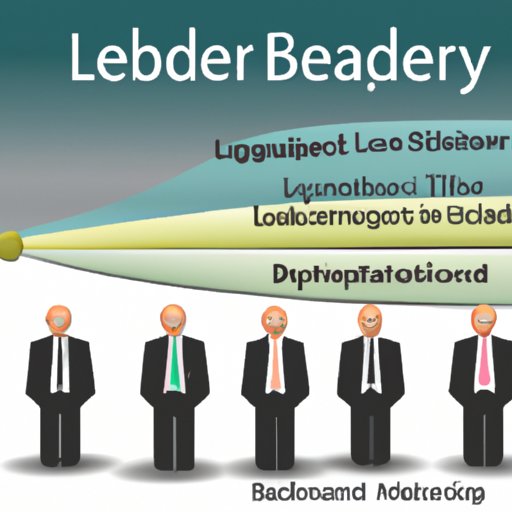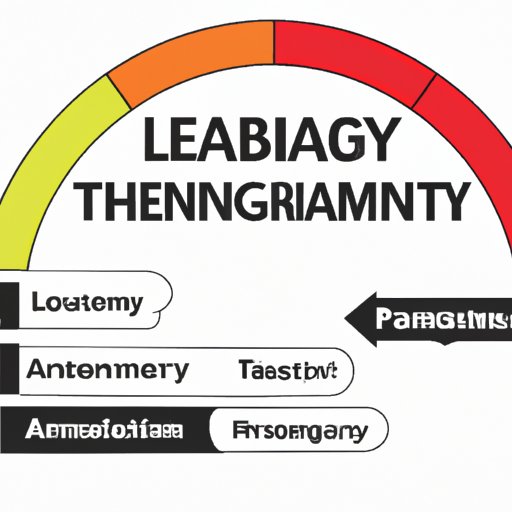Introduction
Leadership theory is a set of principles that explains how people use their authority to influence and motivate others. It provides an understanding of how leaders interact with their followers, how they make decisions, and how they create an environment that encourages people to work together. Leadership theory has been studied for centuries, and there are many different approaches to leadership. In this article, we will explore the history, benefits, and impact of leadership theory, as well as how it can be used to help leaders reach their goals.

A Brief History of Leadership Theory
The study of leadership theory dates back to ancient Greece and Rome, where it was believed that leadership was an innate quality that could not be taught. During the Renaissance, leadership theory shifted to focus more on the traits and skills of leaders. In the 19th century, the scientific method was applied to leadership theory, resulting in the development of the trait theory, which posits that certain traits are essential for effective leadership. This theory was further developed in the 20th century, leading to the emergence of modern leadership theories such as situational and transformational leadership.

An Overview of Different Leadership Theories
There are several different types of leadership theories, each with its own approach to leadership. The most common theories include autocratic, democratic, laissez-faire, and transformational. Autocratic leadership involves a leader who makes all the decisions and expects their followers to obey without question. Democratic leadership involves collaboration between the leader and their followers, allowing them to have input into decisions. Laissez-faire leadership involves allowing followers to make their own decisions without interference from the leader. Transformational leadership involves inspiring followers to strive for higher goals through motivation and enthusiasm.

Exploring the Benefits of Leadership Theory
Leadership theory can provide numerous benefits to organizations. One of the primary benefits is increased efficiency. By understanding the principles of leadership, leaders can better manage their time and resources to maximize productivity. Additionally, leadership theory can improve communication by helping leaders understand how to effectively communicate their ideas and goals to their followers. Finally, leadership theory can enhance motivation by providing leaders with the tools to inspire and engage their followers.
Examining the Impact of Leadership Theory on Organizational Performance
Leadership theory can also have a positive impact on organizational performance. For example, effective leadership can lead to improved team collaboration, which can result in increased innovation and customer satisfaction. Leadership theory also helps leaders develop strategies to ensure that everyone is working towards the same goal. This can help create a unified culture within the organization, which can further improve performance.
Exploring the Role of Leadership Theory in Business Management
Leadership theory can also play an important role in business management. It can help leaders enhance decision-making processes, facilitate change management, and improve employee engagement. By understanding the principles of leadership, managers can better understand the needs of their employees and create an environment that promotes collaboration and creativity. Additionally, leadership theory can help managers develop strategies to achieve their goals and objectives.
Analyzing How Leadership Theory Can Help Leaders Reach their Goals
Leadership theory can also be used to help leaders reach their goals. By understanding the principles of leadership, leaders can better understand their organizational objectives and develop effective strategies to reach those objectives. Additionally, leaders can use leadership theory to guide the implementation of action plans. This can help ensure that the plans are successful and that goals are achieved in a timely manner.
Conclusion
Leadership theory is a valuable tool for leaders and managers. It can help improve organizational performance, enhance decision-making processes, facilitate change management, and improve employee engagement. Additionally, it can help leaders develop strategies to reach their goals and objectives. By understanding the principles of leadership, leaders can better motivate and inspire their followers, creating an environment that encourages collaboration and creativity.
(Note: Is this article not meeting your expectations? Do you have knowledge or insights to share? Unlock new opportunities and expand your reach by joining our authors team. Click Registration to join us and share your expertise with our readers.)
